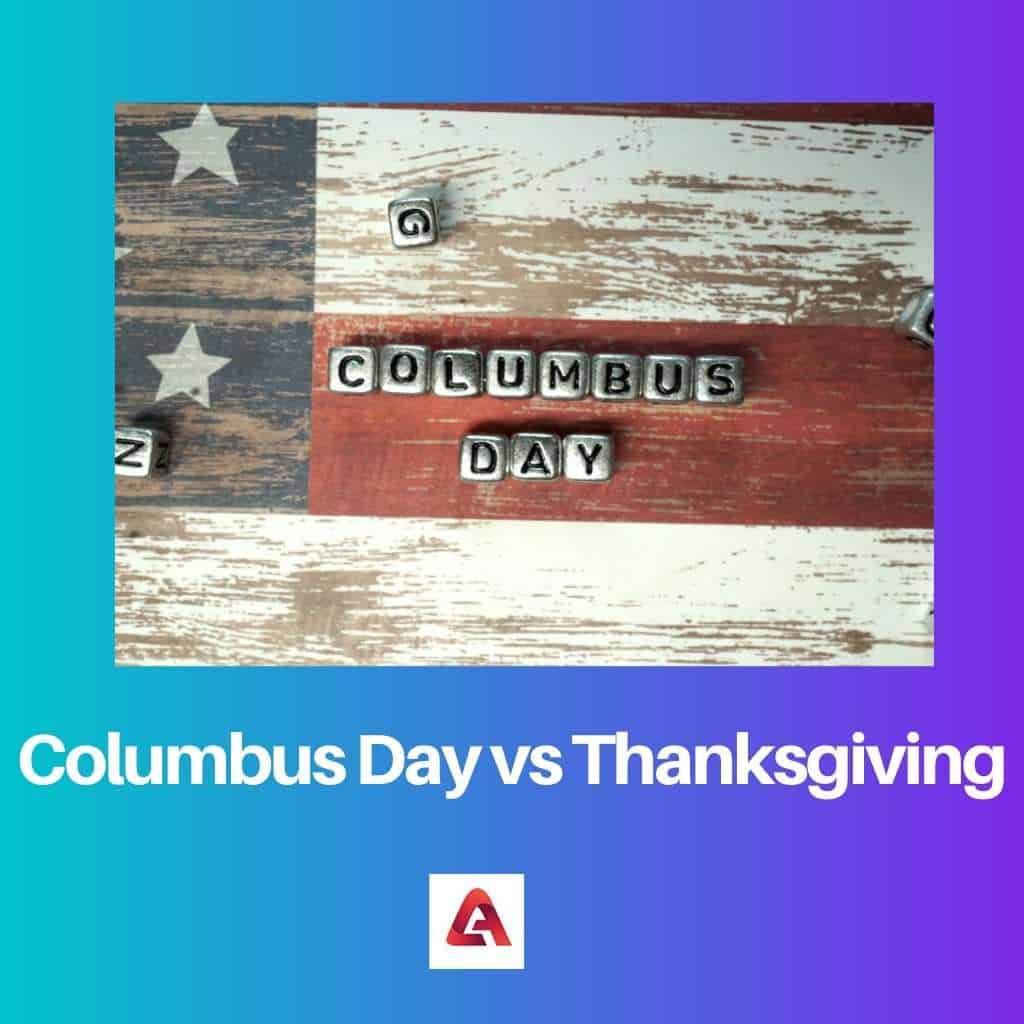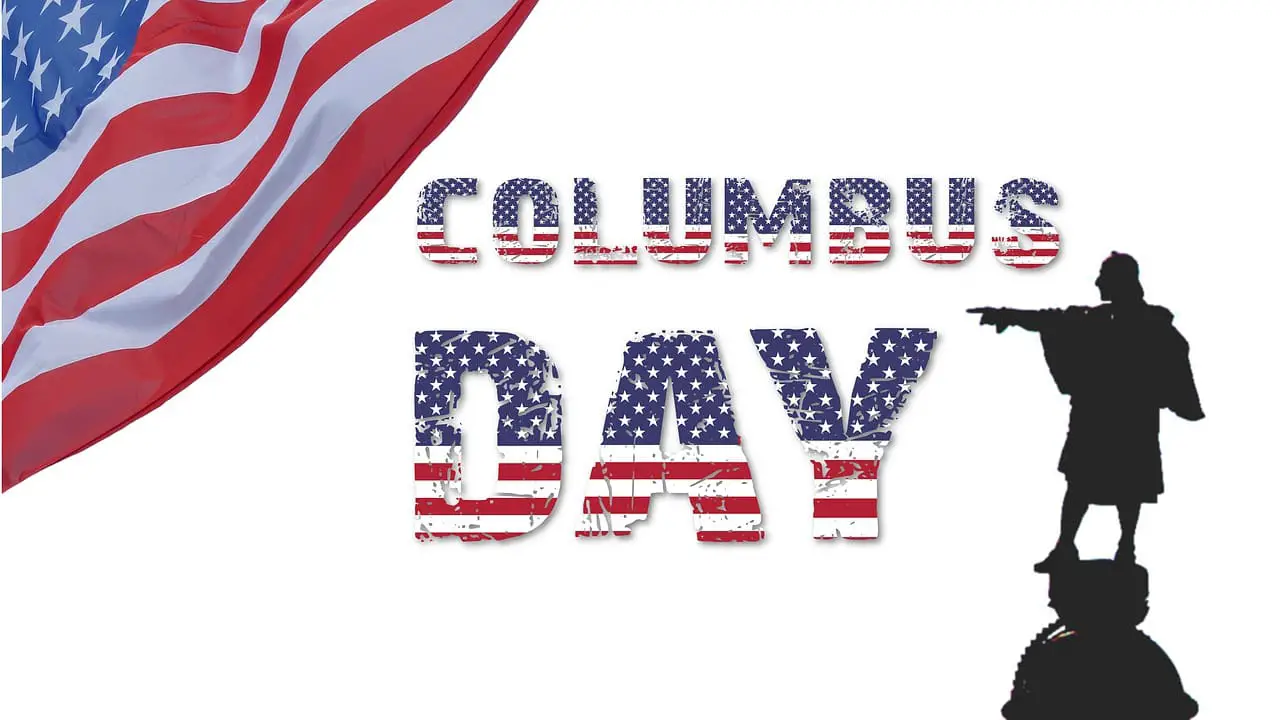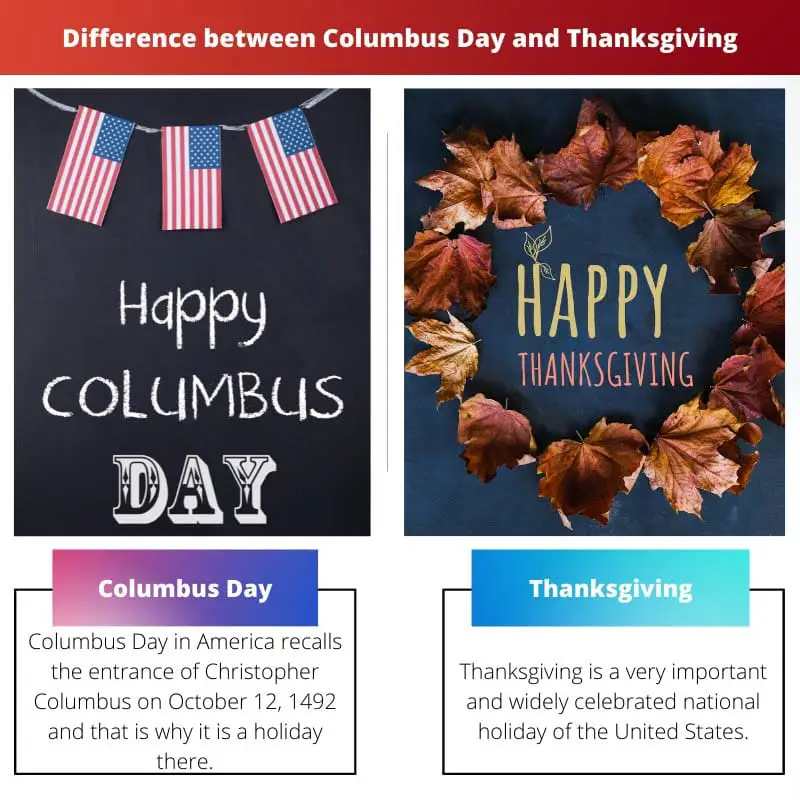America has a rich history, and many days are observed there, with their own historical, cultural, or national relevance.
Unlike other countries, most US holidays are celebrated on days, which are combined with weekends as it becomes convenient, rather than celebrating in the middle of the week.
Two such days are Columbus Day and Thanksgiving Day, which are federal holidays in the states.
Columbus Day is celebrated to mark the historical event of October 12 1492.
Thanksgiving on the other hand is one of the major celebrations, which besides having its cultural importance is also regarded as the beginning of the fall-winter holiday season.
For a lot of people who are inclined toward social justice, both these days present a dilemma about how they can celebrate a day that has a bad history to it and how they can honour the experience of Native Americans.
Key Takeaways
- Columbus Day celebrates Christopher Columbus’s arrival in the Americas, while Thanksgiving commemorates the Pilgrims’ successful harvest and cooperation with Native Americans.
- Columbus Day is observed on the second Monday of October, while Thanksgiving falls on the fourth Thursday of November.
- Columbus Day has become a controversial holiday due to historical implications, while Thanksgiving remains widely accepted as a time for gratitude and family gatherings.
Columbus Day vs Thanksgiving
Columbus Day is controversial due to its history of violence and oppression against Indigenous peoples. Thanksgiving is celebrated on the fourth Thursday in November, traditionally associated with a meal shared between family and friends. It has evolved to become a holiday of family, gratitude, and unity.

Columbus Day in America recalls the entrance of Christopher Columbus on October 12, 1492,, which is why it is a holiday there. He was an Italian native, hence why Italian Americans have remembered his accomplishment until this day.
However, it was not until 1937 that it was declared a national holiday by Franklin D. Roosevelt.
Thanksgiving is an essential and widely celebrated national holiday in the United States. It is a day to be thankful for the past year’s harvest and blessings.
Colonists in New England and Canada used to have frequent Thanksgiving to commemorate days of prayer for gifts such as military victories, safe voyages, or bountiful harvests.
Comparison Table
| PARAMETERS | COLUMBUS DAY | THANKSGIVING |
|---|---|---|
| Observed By | America, Italy, and Spain | Celebration to honour Christopher Columbus’s arrival in the America in 1492 |
| Significance | The date on which observed | Day to thanks for the harvest and blessings of the preceding year |
| Celebration to honour Christopher Columbus’s arrival in the America in 1492 | Second Monday in October (United States); First Monday in November (Italy) | Second Monday in October (Canada) First Thursday in November (Liberia) Fourth Thursday in November (U.S. and Brazil) |
| Type | Historical | Cultural |
| Controversy involved/ Criticism | The controversy involved/ Criticism | Genocide and conquest of Native Americans by colonists |
What is Columbus Day?
The second Monday of October in the United States is Columbus Day. The States have made it a federal holiday for the people there.
The reason behind the observance of this day is that Christopher Columbus discovered America on this day. In history, October 12, 1492, was the date of Christopher’s arrival in America.
This day involves parades, ceremonies, and celebrations for those who celebrate the occasion. Some people also celebrate Italian-American heritage on this day.
This day is also used to talk about what happened after Columbus arrived- the European colonization of America and how it negatively affected the indigenous inhabitants.
In some Latin American countries, October 12 focuses on the indigenous people rather than Columbus’s arrival.
Columbus Day is not associated with any particular meals. But Italian-Americans, who are essentially the people celebrating this day, try not to look at its darker side and enjoy it through parades and street festivals.

What Is Thanksgiving?
Thanksgiving is an annual holiday celebrated with great enthusiasm, both in the United States and Canada. It is a celebration to be grateful for the preceding year’s blessings and harvest.
The English colonists of Plymouth and Wampanoag folks celebrated a harvest feast in 1621, which Americans think inspired their Thanksgiving.
This American celebration is steeped with folklore and symbolism. The customary Thanksgiving feast includes turkey, cranberries, bread stuffing, and pumpkin pie.
This day, which is observed on the fourth Thursday in November, was made a national holiday in 1863.
Thanksgiving weekend has become one of the busiest travel periods as it is when families and friends gather for large meals, dinners, and vacations.
Thanksgiving is also celebrated in Canada with great enthusiasm,, which is why it is a national holiday there too. This celebration shares its date with that of Columbus Day in America, which is the second Monday of October.
It is interesting to know that according to history, the start of Thanksgiving in Canada was because of the safe voyage journey led by Martin Frobisher and was to celebrate.
It is interesting to note that Canada is one of the very few countries in the Western Hemisphere that do not follow Columbus Day, despite having a good legacy of him.

Main Differences Between Columbus Day And Thanksgiving
- Various countries in America, Italy, and Spain observe Columbus Day. On the other hand, Thanksgiving is observed by countries like Canada, Grenada, and the United States, etc.
- The significance of Columbus Day is that it celebrates Christopher Columbus’s arrival in America, while Thanksgiving is a day set aside to express gratitude for the previous year’s harvest and other blessings.
- Columbus Day, which is now celebrated on the second Monday of October in the United States, was originally observed on October 12, 1492. Thanksgiving is also observed on the second Monday of October but in Canada. However, now it is observed on the fourth Thursday of November in the United States.
- Columbus Day has a historical aspect to it but Thanksgiving is a cultural celebration.
- Columbus Day is criticized by some people as Columbus is considered a colonizer whose arrival led to the death and loss of life of indigenous people. Thanksgiving is also criticized; it is not only offensive to indigenous people but also glorifies colonialism, slavery, and epidemics.




